Deck 4: Isomers: the Arrangement of Atoms in Space
Question
Question
Question
Question
Question
Question
Question
Question
Question
Question
Question
Question
Question
Question
Question
Question
Question
Question
Question
Question
Question
Question
Question
Question
Question
Question
Question
Question
Question
Question
Question
Question
Question
Question
Question
Question
Question
Question
Question
Question
Question
Question
Question
Question
Question
Question
Question
Question
Question
Question
Question
Question
Question
Question
Question
Question
Question
Question
Question
Question
Question
Question
Question
Question
Question
Question
Question
Question
Question
Question
Question
Question
Question
Question
Question
Question
Question

Unlock Deck
Sign up to unlock the cards in this deck!
Unlock Deck
Unlock Deck
1/77
Play
Full screen (f)
Deck 4: Isomers: the Arrangement of Atoms in Space
1
Which of the following compounds have an asymmetric center?
A)
B)
C)
D)
E)
A)

B)

C)

D)

E)


2
How many asymmetric centers does the following compound have? 
A) 2
B) 3
C) 1
D) 5
E) 4

A) 2
B) 3
C) 1
D) 5
E) 4
1
3
What is the relationship between the following compounds? 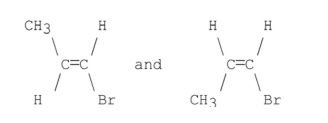
A) configurational isomers
B) conformational isomers
C) constitutional isomers
D) structural isomers
E) positional isomers

A) configurational isomers
B) conformational isomers
C) constitutional isomers
D) structural isomers
E) positional isomers
configurational isomers
4
Which of the following compounds has an R configuration?
A)
B)
C)
D)
A)

B)

C)

D)


Unlock Deck
Unlock for access to all 77 flashcards in this deck.
Unlock Deck
k this deck
5
Identify enantiomers. 
A) B and D, A and C
B) A and C
C) B and D
D) A and B, A and D, B and C, C and D
E) B and D, A and B, A and D, B and C, C and D

A) B and D, A and C
B) A and C
C) B and D
D) A and B, A and D, B and C, C and D
E) B and D, A and B, A and D, B and C, C and D

Unlock Deck
Unlock for access to all 77 flashcards in this deck.
Unlock Deck
k this deck
6
Which of the following is the enantiomer of the compound shown below?

A)
B)
C)
D)
E)

A)

B)

C)

D)

E)


Unlock Deck
Unlock for access to all 77 flashcards in this deck.
Unlock Deck
k this deck
7
What is the relationship between the following compounds? 
A) identical compounds
B) conformational isomers
C) constitutional isomers
D) configurational isomers
E) enantiomers

A) identical compounds
B) conformational isomers
C) constitutional isomers
D) configurational isomers
E) enantiomers

Unlock Deck
Unlock for access to all 77 flashcards in this deck.
Unlock Deck
k this deck
8
Which compounds have an asymmetric center? 
A) A
B) B
C) C
D) A and B
E) A, B, and C

A) A
B) B
C) C
D) A and B
E) A, B, and C

Unlock Deck
Unlock for access to all 77 flashcards in this deck.
Unlock Deck
k this deck
9
What is the relative priority of the CH3 group in the following compound? 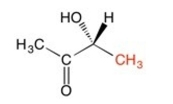
A) 1
B) 2
C) 3
D) 4

A) 1
B) 2
C) 3
D) 4

Unlock Deck
Unlock for access to all 77 flashcards in this deck.
Unlock Deck
k this deck
10
Which of the following compounds are not chiral?
A) 2,3 -dibromobutane
B) 1,3 -dibromobutane
C) 1,2 -dichlorobutane
D) 1,4-dibromobutane
E) 1-bromo-2-chlorobutane
A) 2,3 -dibromobutane
B) 1,3 -dibromobutane
C) 1,2 -dichlorobutane
D) 1,4-dibromobutane
E) 1-bromo-2-chlorobutane

Unlock Deck
Unlock for access to all 77 flashcards in this deck.
Unlock Deck
k this deck
11
Which of the following groups has the highest priority?
A)
B)
C)
D)
E)
A)

B)

C)

D)

E)


Unlock Deck
Unlock for access to all 77 flashcards in this deck.
Unlock Deck
k this deck
12
What is the relationship between the following compounds? 
A) identical compounds
B) constitutional isomers
C) conformational isomers
D) configurational isomers
E) enantiomers

A) identical compounds
B) constitutional isomers
C) conformational isomers
D) configurational isomers
E) enantiomers

Unlock Deck
Unlock for access to all 77 flashcards in this deck.
Unlock Deck
k this deck
13
Identify identical compounds. 
A) B and D, A and C
B) A and C
C) B and D
D) A and B, A and D, B and C, C and D
E) B and D, A and B, A and D, B and C, C and D

A) B and D, A and C
B) A and C
C) B and D
D) A and B, A and D, B and C, C and D
E) B and D, A and B, A and D, B and C, C and D

Unlock Deck
Unlock for access to all 77 flashcards in this deck.
Unlock Deck
k this deck
14
How many asymmetric centers does the following compound have? 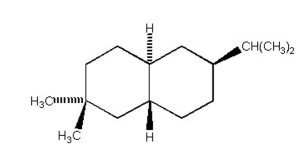
A) 1
B) 2
C) 3
D) 4
E) 5

A) 1
B) 2
C) 3
D) 4
E) 5

Unlock Deck
Unlock for access to all 77 flashcards in this deck.
Unlock Deck
k this deck
15
What type of isomers are CH3CH2OCH3 and CH3CH2CH2OH?
A) constitutional
B) symmetrical
C) configurational
D) conformational
E) stereochemical
A) constitutional
B) symmetrical
C) configurational
D) conformational
E) stereochemical

Unlock Deck
Unlock for access to all 77 flashcards in this deck.
Unlock Deck
k this deck
16
Which of the following compounds has an asymmetric center? I.
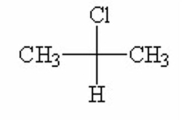
II.
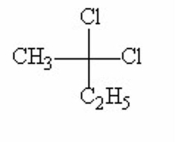
III.
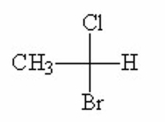
IV.
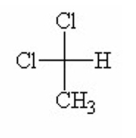
V.
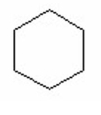
A) I
B) II
C) III
D) IV
E) V

II.

III.

IV.

V.

A) I
B) II
C) III
D) IV
E) V

Unlock Deck
Unlock for access to all 77 flashcards in this deck.
Unlock Deck
k this deck
17
Which of the following compounds has an S configuration?
A)
B)
C)
D)
A)

B)

C)

D)


Unlock Deck
Unlock for access to all 77 flashcards in this deck.
Unlock Deck
k this deck
18
What is the relative priority of the OH group in the following compound? 
A) 1
B) 2
C) 3
D) 4

A) 1
B) 2
C) 3
D) 4

Unlock Deck
Unlock for access to all 77 flashcards in this deck.
Unlock Deck
k this deck
19
How many asymmetric centers does 2,4,6-trimethylheptane have?
A) 0
B) 1
C) 2
D) 3
E) 4
A) 0
B) 1
C) 2
D) 3
E) 4

Unlock Deck
Unlock for access to all 77 flashcards in this deck.
Unlock Deck
k this deck
20
What is the relationship between the following compounds? 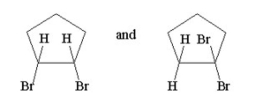
A) diastereomers
B) constitutional isomers
C) conformational isomers
D) configurational isomers
E) enantiomers

A) diastereomers
B) constitutional isomers
C) conformational isomers
D) configurational isomers
E) enantiomers

Unlock Deck
Unlock for access to all 77 flashcards in this deck.
Unlock Deck
k this deck
21
A and B are stereoisomers. They are nonsuperimposable and are mirror images of one another. Which of the following best describes their relationship?
A) structural isomers
B) enantiomers
C) conformational isomers
D) diastereomers
E) constitutional isomers
A) structural isomers
B) enantiomers
C) conformational isomers
D) diastereomers
E) constitutional isomers

Unlock Deck
Unlock for access to all 77 flashcards in this deck.
Unlock Deck
k this deck
22
What is the relationship between the compounds shown below? 
A) identical
B) conformational isomers
C) constitutional isomers
D) stereoisomers
E) none of the above

A) identical
B) conformational isomers
C) constitutional isomers
D) stereoisomers
E) none of the above

Unlock Deck
Unlock for access to all 77 flashcards in this deck.
Unlock Deck
k this deck
23
How many stereoisomers does the following compound have?
A) 0
B) 1
C) 2
D) 4
E) 8
A) 0
B) 1
C) 2
D) 4
E) 8

Unlock Deck
Unlock for access to all 77 flashcards in this deck.
Unlock Deck
k this deck
24
Which of the following are meso compounds?
A) trans-1,4-dimethylcyclohexane
B) cis-1,3-dimethylcyclohexane
C) trans-1,3-dimethylcyclohexane
D) cis-1,4-dimethylcyclohexane
E) trans-1,2-dimethylcyclohexane
A) trans-1,4-dimethylcyclohexane
B) cis-1,3-dimethylcyclohexane
C) trans-1,3-dimethylcyclohexane
D) cis-1,4-dimethylcyclohexane
E) trans-1,2-dimethylcyclohexane

Unlock Deck
Unlock for access to all 77 flashcards in this deck.
Unlock Deck
k this deck
25
If (S)-glyceraldehyde has a specific rotation of -8.7, what is the specific rotation of (R)- glyceraldehyde?
A) -8.7
B) +8.7
C) 0.0
D) cannot be determined from the information given
A) -8.7
B) +8.7
C) 0.0
D) cannot be determined from the information given

Unlock Deck
Unlock for access to all 77 flashcards in this deck.
Unlock Deck
k this deck
26
Which of the following statements describes an achiral molecule?
A) The molecule has a nonsuperimposable mirror image.
B) The molecule exhibits optical activity when it interacts with plane-polarized light.
C) The molecule has an enantiomer.
D) The molecule might be a meso compound.
E) None of the above
A) The molecule has a nonsuperimposable mirror image.
B) The molecule exhibits optical activity when it interacts with plane-polarized light.
C) The molecule has an enantiomer.
D) The molecule might be a meso compound.
E) None of the above

Unlock Deck
Unlock for access to all 77 flashcards in this deck.
Unlock Deck
k this deck
27
Which of the following statements describes a pair of enantiomers?
A) They rotate the plane of polarized light by exactly the same amount and in opposite directions.
B) They rotate the plane of polarized light by differing amounts and in opposite directions.
C) They rotate the plane of polarized light by differing amounts and in the same direction.
D) They have different melting points.
E) They have the same melting point, but they have different boiling points.
A) They rotate the plane of polarized light by exactly the same amount and in opposite directions.
B) They rotate the plane of polarized light by differing amounts and in opposite directions.
C) They rotate the plane of polarized light by differing amounts and in the same direction.
D) They have different melting points.
E) They have the same melting point, but they have different boiling points.

Unlock Deck
Unlock for access to all 77 flashcards in this deck.
Unlock Deck
k this deck
28
How many stereoisomers does the following compound have?
A) 0
B) 1
C) 2
D) 3
E) 4
A) 0
B) 1
C) 2
D) 3
E) 4

Unlock Deck
Unlock for access to all 77 flashcards in this deck.
Unlock Deck
k this deck
29
What is the relationship between the following compounds? 
A) enantiomers
B) diastereomers
C) constitutional isomers
D) conformational isomers
E) identical compounds

A) enantiomers
B) diastereomers
C) constitutional isomers
D) conformational isomers
E) identical compounds

Unlock Deck
Unlock for access to all 77 flashcards in this deck.
Unlock Deck
k this deck
30
What is the relative priority of the CF3 group in the following compound? 
A) 1
B) 2
C) 3
D) 4

A) 1
B) 2
C) 3
D) 4

Unlock Deck
Unlock for access to all 77 flashcards in this deck.
Unlock Deck
k this deck
31
Identify pairs of diastereomers. 
A) B and D, A and C
B) A and C
C) B and D
D) A and B, A and D, B and C, C and D
E) B and D, A and B, A and D, B and C, C and D

A) B and D, A and C
B) A and C
C) B and D
D) A and B, A and D, B and C, C and D
E) B and D, A and B, A and D, B and C, C and D

Unlock Deck
Unlock for access to all 77 flashcards in this deck.
Unlock Deck
k this deck
32
Which of the following statements describes the compound shown below? 
A) It is achiral.
B) It is meso.
C) Its asymmetric center possesses the R configuration.
D) The mirror image of this molecule is its enantiomer.

A) It is achiral.
B) It is meso.
C) Its asymmetric center possesses the R configuration.
D) The mirror image of this molecule is its enantiomer.

Unlock Deck
Unlock for access to all 77 flashcards in this deck.
Unlock Deck
k this deck
33
A mixture of equal amounts of two enantiomers ________.
A) is called a racemic mixture
B) is optically inactive
C) implies that the enantiomers are meso forms
D) both A and B
E) none of the above
A) is called a racemic mixture
B) is optically inactive
C) implies that the enantiomers are meso forms
D) both A and B
E) none of the above

Unlock Deck
Unlock for access to all 77 flashcards in this deck.
Unlock Deck
k this deck
34
Which of the following are chiral?
A) cis-1-bromo-3-chlorocyclobutane
B) trans-1-bromo-3-chlorocyclobutane
C) cis-1,4-dimethylcyclohexane
D) cis-1,3-dimethylcyclohexane
E) trans-1,3-dimethylcyclohexane
A) cis-1-bromo-3-chlorocyclobutane
B) trans-1-bromo-3-chlorocyclobutane
C) cis-1,4-dimethylcyclohexane
D) cis-1,3-dimethylcyclohexane
E) trans-1,3-dimethylcyclohexane

Unlock Deck
Unlock for access to all 77 flashcards in this deck.
Unlock Deck
k this deck
35
What is the relationship between the compounds shown below? 
A) enantiomers
B) configurational isomers
C) conformational isomers
D) identical compounds
E) constitutional isomers

A) enantiomers
B) configurational isomers
C) conformational isomers
D) identical compounds
E) constitutional isomers

Unlock Deck
Unlock for access to all 77 flashcards in this deck.
Unlock Deck
k this deck
36
Which of the following is a true statement?
A) All chiral molecules possess a plane of symmetry.
B) All achiral molecules are meso compounds.
C) All molecules that possess an asymmetric center with the S configuration are levorotatory.
D) A mixture of achiral compounds is optically inactive.
E) All molecules that possess two or more chirality centers are chiral.
A) All chiral molecules possess a plane of symmetry.
B) All achiral molecules are meso compounds.
C) All molecules that possess an asymmetric center with the S configuration are levorotatory.
D) A mixture of achiral compounds is optically inactive.
E) All molecules that possess two or more chirality centers are chiral.

Unlock Deck
Unlock for access to all 77 flashcards in this deck.
Unlock Deck
k this deck
37
Which of the following is not true about enantiomers?
A) They have the same melting point.
B) They have the same boiling point.
C) They have the same chemical reactivity with non-chiral reagents.
D) They have the same density.
E) They have the same specific rotation.
A) They have the same melting point.
B) They have the same boiling point.
C) They have the same chemical reactivity with non-chiral reagents.
D) They have the same density.
E) They have the same specific rotation.

Unlock Deck
Unlock for access to all 77 flashcards in this deck.
Unlock Deck
k this deck
38
The specific rotation of a pure substance is 1.68. What is the specific rotation of a mixture containing 75% of this isomer and 25% of the (-) isomer?
A) +1.68
B) 0
C) +1.26
D) +0.84
E) +.042
A) +1.68
B) 0
C) +1.26
D) +0.84
E) +.042

Unlock Deck
Unlock for access to all 77 flashcards in this deck.
Unlock Deck
k this deck
39
What is the relationship between the following compounds? 
A) enantiomers
B) diastereomers
C) constitutional isomers
D) conformational isomers
E) identical compounds

A) enantiomers
B) diastereomers
C) constitutional isomers
D) conformational isomers
E) identical compounds

Unlock Deck
Unlock for access to all 77 flashcards in this deck.
Unlock Deck
k this deck
40
Which of the following are optically inactive?
A) a 50-50 mixture of R and S enantiomers
B) a meso compound
C) every achiral compound
D) a racemic mixture
E) all the above
A) a 50-50 mixture of R and S enantiomers
B) a meso compound
C) every achiral compound
D) a racemic mixture
E) all the above

Unlock Deck
Unlock for access to all 77 flashcards in this deck.
Unlock Deck
k this deck
41
The compound  contains only one asymmetric center. Explain why it has four stereoisomers.
contains only one asymmetric center. Explain why it has four stereoisomers.
 contains only one asymmetric center. Explain why it has four stereoisomers.
contains only one asymmetric center. Explain why it has four stereoisomers.
Unlock Deck
Unlock for access to all 77 flashcards in this deck.
Unlock Deck
k this deck
42
Which of the following terms describes the pair of compounds shown below: enantiomers,
diastereomers, or the same compound?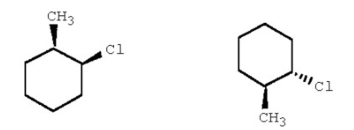
diastereomers, or the same compound?


Unlock Deck
Unlock for access to all 77 flashcards in this deck.
Unlock Deck
k this deck
43
Which of the following terms describes the pair of compounds shown below: enantiomers,
diastereomers, or the same compound?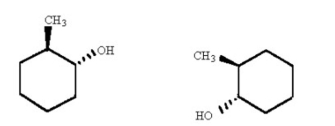
diastereomers, or the same compound?


Unlock Deck
Unlock for access to all 77 flashcards in this deck.
Unlock Deck
k this deck
44
Which of the following terms describes the pair of compounds shown below: enantiomers,
diastereomers, or the same compound?
diastereomers, or the same compound?


Unlock Deck
Unlock for access to all 77 flashcards in this deck.
Unlock Deck
k this deck
45
Can you predict whether a compound with a single asymmetric center is  based on the R/S assignment of the asymmetric center? Explain.
based on the R/S assignment of the asymmetric center? Explain.
 based on the R/S assignment of the asymmetric center? Explain.
based on the R/S assignment of the asymmetric center? Explain.
Unlock Deck
Unlock for access to all 77 flashcards in this deck.
Unlock Deck
k this deck
46
Which of the following terms describes the pair of compounds shown below: enantiomers,
diastereomers, or the same compound?
diastereomers, or the same compound?


Unlock Deck
Unlock for access to all 77 flashcards in this deck.
Unlock Deck
k this deck
47
Draw (S)-1-bromo-1-chloropropane.

Unlock Deck
Unlock for access to all 77 flashcards in this deck.
Unlock Deck
k this deck
48
Draw the enantiomer of the compound shown below. 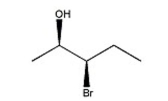


Unlock Deck
Unlock for access to all 77 flashcards in this deck.
Unlock Deck
k this deck
49
Draw the skeletal structure for (R)-4-octanol.

Unlock Deck
Unlock for access to all 77 flashcards in this deck.
Unlock Deck
k this deck
50
Draw the stereoisomers of 1,2-dichlorocyclopentane.

Unlock Deck
Unlock for access to all 77 flashcards in this deck.
Unlock Deck
k this deck
51
How many asymmetric centers does the following compound have? 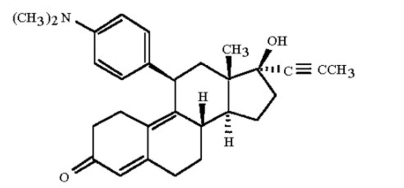


Unlock Deck
Unlock for access to all 77 flashcards in this deck.
Unlock Deck
k this deck
52
Is the compound shown below chiral or achiral? 


Unlock Deck
Unlock for access to all 77 flashcards in this deck.
Unlock Deck
k this deck
53
Is the compound shown below chiral or achiral? 


Unlock Deck
Unlock for access to all 77 flashcards in this deck.
Unlock Deck
k this deck
54
Which of the following compounds are not chiral? 


Unlock Deck
Unlock for access to all 77 flashcards in this deck.
Unlock Deck
k this deck
55
Which of the following terms describes the pair of compounds shown below: enantiomers,
diastereomers, or the same compound?
diastereomers, or the same compound?


Unlock Deck
Unlock for access to all 77 flashcards in this deck.
Unlock Deck
k this deck
56
Is the compound shown below chiral or achiral? 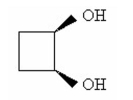


Unlock Deck
Unlock for access to all 77 flashcards in this deck.
Unlock Deck
k this deck
57
Stereoisomers that are not mirror images are called ________.

Unlock Deck
Unlock for access to all 77 flashcards in this deck.
Unlock Deck
k this deck
58
Is the compound shown below chiral or achiral? 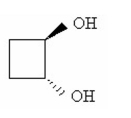


Unlock Deck
Unlock for access to all 77 flashcards in this deck.
Unlock Deck
k this deck
59
Draw the structure of the meso form of 1,3-dichlorocyclopentane.

Unlock Deck
Unlock for access to all 77 flashcards in this deck.
Unlock Deck
k this deck
60
Does the asymmetric center in the following compound have the R or S configuration? 


Unlock Deck
Unlock for access to all 77 flashcards in this deck.
Unlock Deck
k this deck
61
Draw the structure of (Z)-4-ethyl-3,6-dimethyl-3-heptene.

Unlock Deck
Unlock for access to all 77 flashcards in this deck.
Unlock Deck
k this deck
62
Is the compound shown below chiral or achiral? 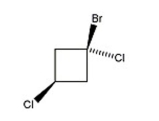


Unlock Deck
Unlock for access to all 77 flashcards in this deck.
Unlock Deck
k this deck
63
What is the configuration of the following compoound? 
A) cis
B) E
C) trans
D) Z
E) none of the above

A) cis
B) E
C) trans
D) Z
E) none of the above

Unlock Deck
Unlock for access to all 77 flashcards in this deck.
Unlock Deck
k this deck
64
What is the configuration of the following compoound? 
A) cis
B) trans
C) E
D) Z
E) none of the above

A) cis
B) trans
C) E
D) Z
E) none of the above

Unlock Deck
Unlock for access to all 77 flashcards in this deck.
Unlock Deck
k this deck
65
What is the configuration of the following compoound? 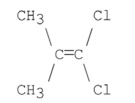
A) E
B) Z
C) neither E nor Z

A) E
B) Z
C) neither E nor Z

Unlock Deck
Unlock for access to all 77 flashcards in this deck.
Unlock Deck
k this deck
66
Is the compound shown below chiral or achiral? 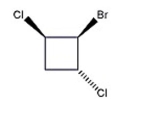


Unlock Deck
Unlock for access to all 77 flashcards in this deck.
Unlock Deck
k this deck
67
Is the compound shown below chiral or achiral? Is it a meso compound? 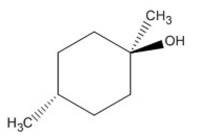


Unlock Deck
Unlock for access to all 77 flashcards in this deck.
Unlock Deck
k this deck
68
Is the compound shown below chiral or achiral? 


Unlock Deck
Unlock for access to all 77 flashcards in this deck.
Unlock Deck
k this deck
69
Is the compound shown below chiral or achiral? Is it a meso compound? 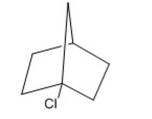


Unlock Deck
Unlock for access to all 77 flashcards in this deck.
Unlock Deck
k this deck
70
What is the configuration of the following compoound? 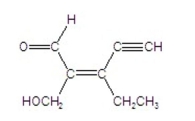
A) Z
B) trans
C) E
D) cis
E) none of the above

A) Z
B) trans
C) E
D) cis
E) none of the above

Unlock Deck
Unlock for access to all 77 flashcards in this deck.
Unlock Deck
k this deck
71
Is the compound shown below chiral or achiral? 


Unlock Deck
Unlock for access to all 77 flashcards in this deck.
Unlock Deck
k this deck
72
Is the compound shown below chiral or achiral? Is it a meso compound? 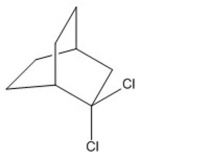


Unlock Deck
Unlock for access to all 77 flashcards in this deck.
Unlock Deck
k this deck
73
Which of the following compounds have cis-trans isomers?
A) 1-butene
B) 1-pentene
C) cyclohexene
D) ethene
E) 2-butene
A) 1-butene
B) 1-pentene
C) cyclohexene
D) ethene
E) 2-butene

Unlock Deck
Unlock for access to all 77 flashcards in this deck.
Unlock Deck
k this deck
74
Name the following compound:
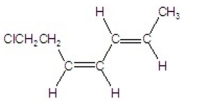
A) (2E,4E)-7-chloro-2,4-heptadiene
B) (2Z,4E)-7-chloro-2,4-heptadiene
C) (2Z,4Z)-7-chloro-2,4-heptadiene
D) (2E,4Z)-7-chloro-2,4-heptadiene
E) 7-chloro-2,4-heptadiene

A) (2E,4E)-7-chloro-2,4-heptadiene
B) (2Z,4E)-7-chloro-2,4-heptadiene
C) (2Z,4Z)-7-chloro-2,4-heptadiene
D) (2E,4Z)-7-chloro-2,4-heptadiene
E) 7-chloro-2,4-heptadiene

Unlock Deck
Unlock for access to all 77 flashcards in this deck.
Unlock Deck
k this deck
75
What is the configuration of the following compoound? 
A) cis
B) trans
C) E
D) Z
E) none of the above

A) cis
B) trans
C) E
D) Z
E) none of the above

Unlock Deck
Unlock for access to all 77 flashcards in this deck.
Unlock Deck
k this deck
76
Draw the structure of (Z)-4-ethyl-3-methylheptene.

Unlock Deck
Unlock for access to all 77 flashcards in this deck.
Unlock Deck
k this deck
77
Does the following compound have the E or Z configuration? 


Unlock Deck
Unlock for access to all 77 flashcards in this deck.
Unlock Deck
k this deck



